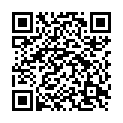|
|
|
| Module code: DFBME-304 |
|
|
2VU (2 hours per week) |
|
2 |
| Semester: 3 |
| Mandatory course: yes |
Language of instruction:
German |
Assessment:
Written exam (60%,), presentation (40%) Each exam must be passed on its own.
[updated 08.01.2024]
|
DFBME-304 (P610-0319) Mechanical Engineering, Bachelor, ASPO 01.10.2019
, semester 3, mandatory course
DFBME-304 (P610-0319) Mechanical Engineering, Bachelor, ASPO 01.10.2024
, semester 3, mandatory course
|
30 class hours (= 22.5 clock hours) over a 15-week period.
The total student study time is 60 hours (equivalent to 2 ECTS credits).
There are therefore 37.5 hours available for class preparation and follow-up work and exam preparation.
|
Recommended prerequisites (modules):
None.
|
Recommended as prerequisite for:
|
Module coordinator:
Dr. Julia Frisch |
Lecturer: Dr. Julia Frisch
[updated 09.08.2020]
|
Learning outcomes:
After successfully completing this module, students will be able to:
define and explain concepts and terms such as culture, stereotypes and perception of others
describe cultural differences in working life with a focus on the Franco-German context
explain and critically reflect on various models of cultural comparison
explain typical critical incidents from the Franco-German working environment with regard to intercultural differences and propose solutions
work out individual cultural differences and peculiarities for themselves using case studies
[updated 08.01.2024]
|
Module content:
apply different cultural models and definitions
recognize different levels of communication and their associated special features in an intercultural context (gestures, facial expressions, proxemics).
Perception of others, stereotypes and prejudices
At least two different models of cultural comparison in contrast (e.g. Hofstede, Lewis, Thomas, GLOBE)
Practical case studies (texts, videos) from the working world with a focus on Germany-France
Introduction to intercultural competence
Reflections/exercises on own cultural imprint
[updated 08.01.2024]
|
Teaching methods/Media:
Lecturer presentations
(Interactive) exercises and case studies
Group work
Digital content via Moodle
[updated 08.01.2024]
|
Recommended or required reading:
General literature recommendations for this module:
Barmeyer, Christoph: Taschenlexikon Interkulturalität. Vandenhoeck & Ruprecht, Göttingen, neueste Auflage.
Breuer, Jochen Peter/de Bartha, Pierre: Deutsch-Französische Geschäftsbeziehungen erfolgreich managen. Spielregeln für die Zusammenarbeit auf Führungs- und Fachebene. Deutscher Wirtschaftsdienst, Köln, neueste Auflage.
Meyer, Erin: The Culture Map. Decoding how people think, lead, and get things done across cultures. Public Affairs, New York, neueste Auflage.
Schroll-Machl, Sylvia (2003): Doing Business with Germans. Their perception, our perception. Göttingen: Vandenhoeck & Ruprecht.
Untereiner, Gilles : Le Marché Allemand: Bien connaître les Allemands pour mieux travailler avec eux. Maxima, Paris, neueste Auflage.
Spezifische Literatur + Material wird im Kurs zur Verfügung gestellt.
[updated 08.01.2024]
|

